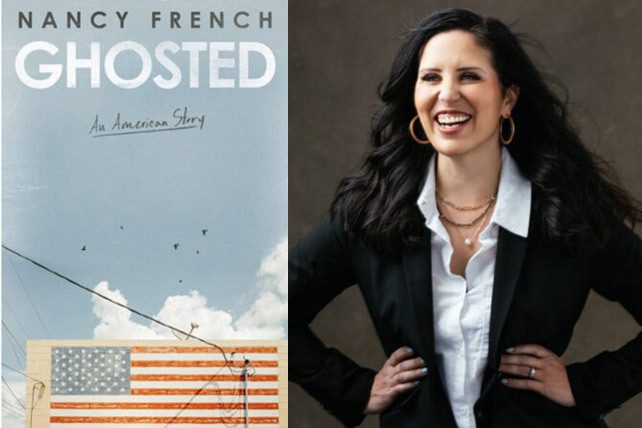“It’s me reaching out my hand and saying, ‘Hey, do you feel spiritually homeless, geographically homeless, ideologically homeless, culturally homeless?’” she said in a recent interview with Religion News Service. “If so, I feel that way, too. Let’s talk.”
The book begins with French showing up at her house just south of Nashville, Tennessee, to find an FBI agent’s card taped to her mailbox and learning that a credible death threat had been issued against her and her husband. Then it flashes back to scenes from a childhood in rural Tennessee, peeling apples with her grandmother in the kitchen and sneaking a peak at her great-grandfather’s Klan robe.
French said she began the book by talking about her roots because in recent years she’s often been told she is an elitist who doesn’t understand the Southerners who supported Trump. That galls French, a three-time college dropout raised in the Bible Belt.
“You can’t out-Tennessee me,” she said. “You can’t out-rural me. Literally, my terminal degree is from Henry County High School in 1993. I wanted to show people a little bit of my biography so they would not feel the need to have to explain to me what Tennesseans are like.”
From an early age, French recounts her life as filled with ambition and sorrow. She grew up in the Church of Christ, a denomination known for its a cappella singing—the church’s teaching bans musical instruments in service—and conservative beliefs, especially about sexuality.
During her teen years, however, a young pastor began paying attention to her and eventually began to abuse her—an experience that haunted her for years. When she learned years later he’d been fired for a different case of abuse, she felt guilty for not reporting him earlier—wondering if she could have prevented him from hurting others.
She escaped her small town and found herself at Lipscomb University in Nashville, in part because of a cold call from David French, a Lipscomb alum who reached out to her at the school’s request to recommend it. There she made friends with a girl named Virginia, who was beautiful and kind and, like her, filled with moxie and a bit of a misfit within the school’s conservative culture.
The two had planned to take a long trip together during a break but French had to cancel at the last minute because of a family funeral. Virginia went and died in a car wreck.
“We were co-belligerents at our university that we felt was oppressing us,” French said. “I’ve never been the same since she died. But I am better off for her friendship. Knowing her and being friends with her was so transformative for my life. Which also meant that when she died, it was so much worse.”
Neither her faith nor her classmates could comfort her. For weeks French kept a final note from Virginia on the dry-erase board outside her door. Then one day, a classmate erased it, saying it was too depressing, French recalls.
She found hope eventually in her faith and in her friendship with David, which turned into a whirlwind romance. The two—much to the chagrin of some of their friends—flew to Paris to get married when she was 20. Things got off to a rough start, as their luggage was lost and the boat they had planned to be married on sunk. But they made the best of it.

